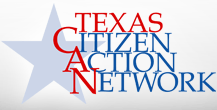Senate Crafts Their Budget Proposal, Promising Not To Increase Taxes
Over the past few weeks, the Texas Legislature has been occupied with constructing a budget for 2012-2013 that will alleviate the current budget shortfalls and not cause problems in the future. The House passed their $164.5 billion budget on April 3, and meanwhile, the Senate has been diligently working to craft their less intense budget plan while upholding their promise not to raise taxes. The Senate budget is alleged to be close to $16 billion more than the House plan.
On Tuesday, April 19, the Senate Finance Committee unveiled $4.8 billion in ideas to help solve the budget deficit. These included anything from accelerated tax collection, property sales, changes in unclaimed property programs, and other measures that can be read in detail at the Texas Tribune’s website. The Senate is not willing to consider deep budget cuts like the House because they want to ensure there is enough funding for their top priorities: public education and Medicaid.
The Senate is set to consider whether or not to use additional funding from the Rainy Day Fund on Wednesday, April 20. However, Governor Perry has already warned he will veto any proposal that uses more money from the $9.4 billion emergency account and the House opposes the idea as well. House Appropriations Committee Chairman, Jim Pitts stated that the House may be willing to support up to $4.5 billion more than what has already been spent if it goes toward education and as long as revenue could be found without increasing taxes.
Nothing has been finalized, but the Senate is scheduled to have their budget plan complete and sent to the House by May 1, leaving bother chambers with one month to compromise. It is important to point out that both chambers of the Texas Legislature have made every effort to solve the state’s budget crisis without raising taxes for the citizens of Texas.
